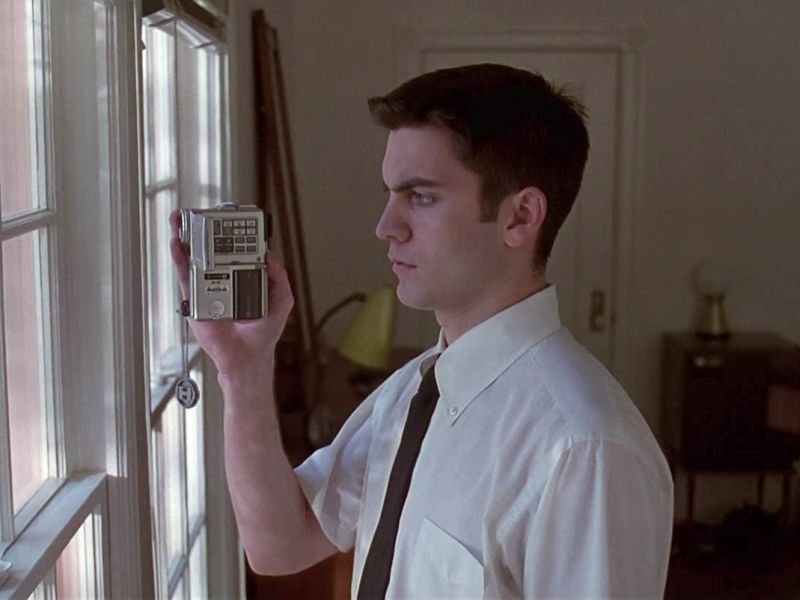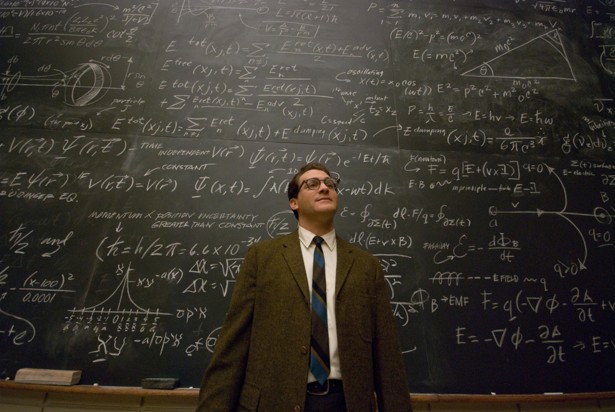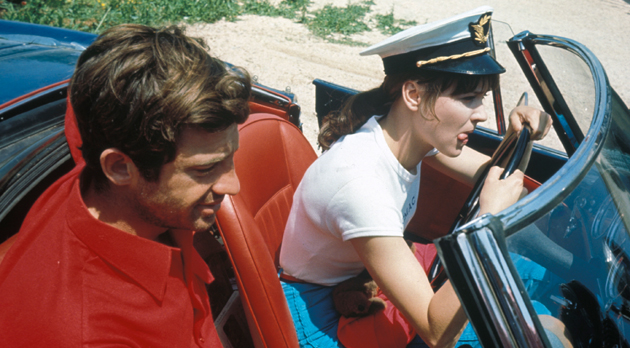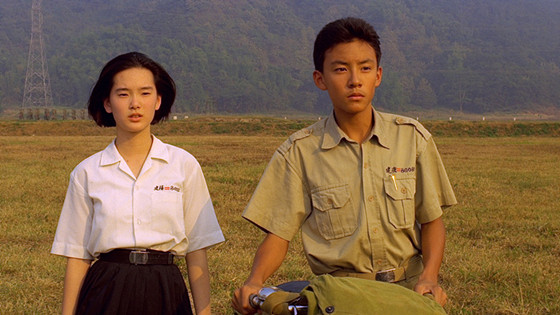5. American Beauty

Looking past the recent controversy surrounding Kevin Spacey as well as how eerily accurate the events of American Beauty are in the context of that unfortunate fiasco, American Beauty is perhaps the penultimate film examining the inevitable mid-life crisis that comes packaged together with suburban life.
For a directorial debut from an individual hailing from the realm of theatre, and considering the fact that American Beauty was a film that’s initially conceived as a play, the film’s visuals is surprisingly mature. It extends far and beyond your standard typical American drama or even a mindless “visual feast”. It tells a story. It brilliantly reflects the overall phantasmagorical charm that exudes from Mendes’s and Alan Ball’s sublime narrative.
It tells a universal story. One not of any grandiose existential dread but something much more fundamental. The idea of inadequacy. Inadequacy in relation to our jobs, our lovelife, ourselves. Will we be content with this? Or will we make a conscious effort to improve ourselves? Does it really matter? Can we just approach this ideology with nothing but a sense of blissful ignorance? Will we really want to?
4. A Serious Man

A series of vignettes exemplifying the senseless yet uncompromising absurdities that constitute everyday life, coherently stitched together to form a powerful existential satire, A Serious Man is a film that speaks volumes about the struggles of an everyman in a darkly funny yet deeply profound and insightful manner.
The meaning of life is a universal doubt had by every individual to have ever lived, in some degree. What is our purpose in life? What have we done to deserve this life? All these questions are projected onto Larry Gopnik, our hapless protagonist, as he meanders through a series of unfortunate events plaguing his existence with a less-than-positive attitude. Larry’s arc through the course of the film comes across as absurdly simplistic and doesn’t call for any particular alarm whatsoever. Yet it still resonates.
Regardless of the absurd nature of the film and Larry’s pathetic existence, A Serious Man remains a powerful philosophical statement on life and the meaning of it all, or the lack thereof. The sequence of events is just so humorously unique and yet deeply poetic that just simply exemplifies how incredible of filmmakers the Coens are.
You know that feeling when you watch a beat unfold in a film, a beat that’s executed so incredibly well and so unbelievably creative that you simply can’t fathom how the filmmakers were able to even conceive it to begin with? A Serious Man is a film chock-full with such moments, brilliantly delivered in the unassuming tale of a whiny middle-aged Jew.
3. Pierrot le Fou

You don’t strictly speaking have to understand Pierrot le Fou in order to enjoy it. You don’t even have to care much for the words spoken to care for the film as a whole. It may be a tonally inconsistent, pretentious and incoherent hot mess. But it is beautiful. Beauty far exceeding its already spellbinding visuals. Beauty from its very essence.
Much like the rest of Godard’s avant garde oeuvre, Pierrot le Fou’s enticing logline isn’t one that explicitly delivers on what it promises. Mood and feel take major precedence over any semblance of a plot. The grandiose hedonistic endeavours of our protagonists seem more akin to a montage, a cacophony of contrasting ideas and vignettes, as opposed to an epic odyssey screaming notions of love and escapism. The emotion resulting from this experimental experience is something exquisitely alluring.
Past a superficial level, Pierrot le Fou’s meaning comes across as indecipherable. It presents the idea of love and life in the freest and most exuberant form it can possibly exist in the medium of screen, sensationalising the banal, stylising the mundane. It’s a love story between two immature youths on a futile quest to find themselves. This much holds true. Any other attempts at an in-depth analysis would ultimately prove fruitless for most individuals. But does that really matter in the context of this film?
If you were to go as far as to meticulously dissect any of Godard’s works, you would lose its purpose in the pursuit of finding one. Meaning pales in the face of feeling. So just shut down your brain and think with your heart and marvel at this singular experience, moulded into absolute perfection by a man with a complete understanding of cinema and how exactly to manipulate it.
2. Wild Strawberries

Where the other films on this list focus on the struggles of misguided youths and disgruntled blokes, Wild Strawberries centres around a distinguished man at the twilight years of his life, still stuck on that same journey of self-discovery perhaps reinvigorated by his impending morality.
Wild Strawberries is an odyssey, an odyssey undertaken taken by an old man towards not only something as straightforward as receiving an award, but towards the acceptance of death, sending him on a path of reflection. Reflecting on the life he once led, the experiences of a youth once gone, a love once lost.
Wild Strawberries is a tale of regret, a story of longing, a chronicle of a respectable man ashamed at himself and who he’s become, even if he did live a life worth living, at least in the traditional sense.
Bergman takes you on a journey, experiencing the pain of old age alongside the protagonist. We see through his eyes, everything that he has taken for granted all this years, reflected in the people he meets along the journey, in some sort of a melancholic road trip down the recesses of his own failing mind.
Wild Strawberries is a film that makes you relate to this universal plight, regardless of which point of time you are in your life.
1. A Brighter Summer Day

Yang’s 4-hour epic following a schoolboy over 4 years in his life tells a tale that’s both intimate and grandiose. Nothing in the film calls attention to itself, as do other films of Yang’s filmography, with beautifully composed wide shots, utilising little fancy camera movement.
The myriad of characters presented to us all feel like real people with their own personalities and back stories, and despite the 4-hour runtime, Yang doesn’t explicitly present us with exposition regarding their character traits. He instead allows us to discover who the characters are ourselves and grow with them throughout the film. The story is extremely complex, and masterfully blends the diverse cast of characters with intricate yet fully realised subplots.
The film is highly political, making bold statements on authority and the chain reaction in terms of influence it can have on the younger generations. A common flaw plaguing political films is that they can often be too caught up in their own message and disregard the dynamics of the story.
As for A Brighter Summer Day, the message isn’t anything more than a complement to the story. A story developing over a span of 4 hours on screen and years in the film world. It never once felt too draggy. Not a single scene felt unnecessary, and more importantly, everything in the film can still be held in the same level of regard and attention by the genius of an auteur.
This is the work of a master. This is the kind of film that gets replicated and reimagined. Though the years that follow Yang’s epic has seen masterpieces in arthouse cinema, with the emergence of countless great directors with great filmographies, none of them can ever reach the same mark and calibre as Yang did with A Brighter Summer Day.